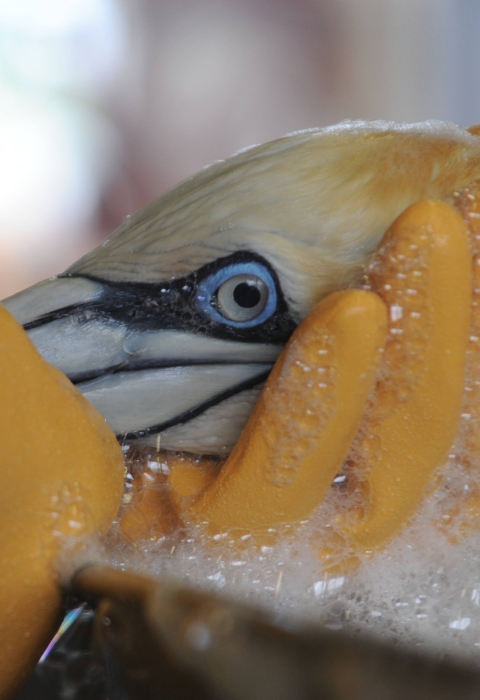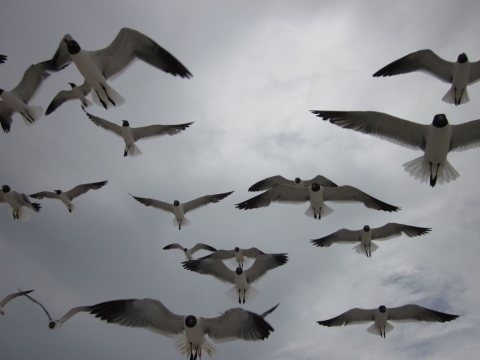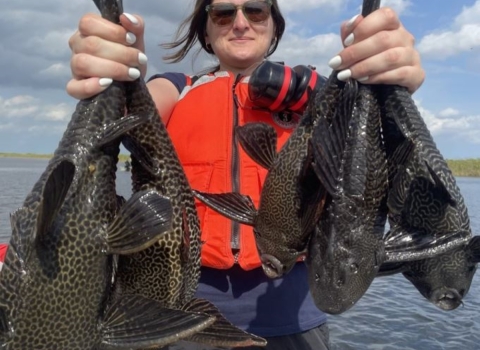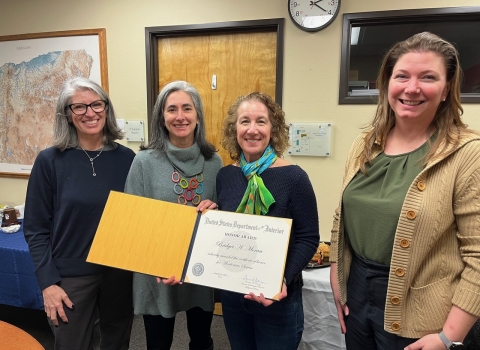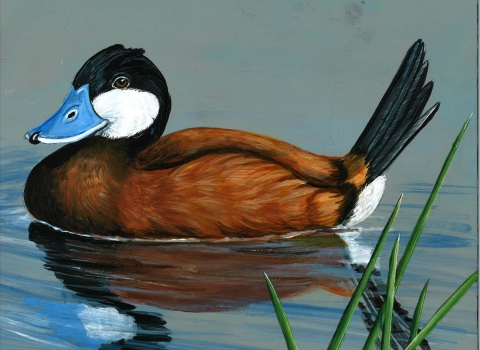We put on our life-vests and rushed out on our boat through the rugged waves angered by the approach of hurricane Alex. The air was thick with fumes and our clothes were freckled by the tainted water splashing up over the railing. Finally, it came into view. A laughing gull coated in thick, auburn oil floated helplessly, waiting to be rescued from its once-perfect home. We gently lifted it up with a net and its unblinking eye beckoned for relief. The 2010 Gulf oil spill impacted a great number of wildlife and their plights touched many hearts the world over. It was a devastating event and it took many unlikely groups working together to help soak up the effects, even a little.
The Ticking Clock
When I heard it had happened I knew that I wanted to help. When I arrived in Alabama the whole system was running like a ticking clock and the Incident Command System was the motor behind it. The Incident Command System is used for emergency response complete with divisions of planning, operations, logistics, finance, safety and more. Often, this system is used by firefighters and has proven tried and true. It is set up so that it can be used on any disaster like a pre-packed pop-up tent. The system was set but this was a wildlife disaster of vast proportions. So, in came the next piece to the clock.
Adding Some Gears
In light of the devastating effects on the wildlife and its habitats specifically, biologists were high in demand as subject matter experts on the health, wellbeing and handling of wildlife collected. And so it was, wildlife biologists were brought in from across the country to help both state and federal firefighters tackle the issue. The firefighters had the Incident Command System down so pairing them with biologists created an ideal oiled-bird rescue team. This union got crews out on the ground in an instant with both the technical and biological expertise in supply. Still, the clock required more cogs to tick just right.
The Pendulum Swings
Many local fishermen and boat owners were out of business during the oil spill. A new program was created called the Vessels of Opportunity (VOO). Humble fisherman clung to the opportunity to stay financially afloat, while their livelihoods were on hold, but also wanted to make a difference for the local wildlife in peril. Through this program, local boat owners could take the oiled-bird rescue teams out on the Gulf to rescue birds that had been reported in. The crews needed boats, the fishermen needed an income and the wildlife in danger was waiting.
The Washers
After the birds were rescued, they were taken to the next piece of the operation. A local vet and wildlife rehabilitator ensured they were hydrated, fed, cleaned and cared for until they were healthy enough for release. The walls were lined with dishwashing soap and large crates throughout the facility nested the birds in their temporary homes. The rehab centers never had a dull moment and the birds continued to come and go.
Dialing it Forward
Years later, the impacts from the oil spill are still being studied. The rescue crews have gone home and the boats are back out fishing. No one has forgotten the coated laughing gulls or the way the spill impacted their lives but the collaboration of so many parties with seemingly nothing in common, also made a potent impression. No one can fight an oil spill on their own, the wildlife can’t wish it away, and the fisherman can’t pretend it isn’t there. Collaboration for fast and powerful action was the key. We couldn’t turn back time but we could join together to speed up the recovery.
